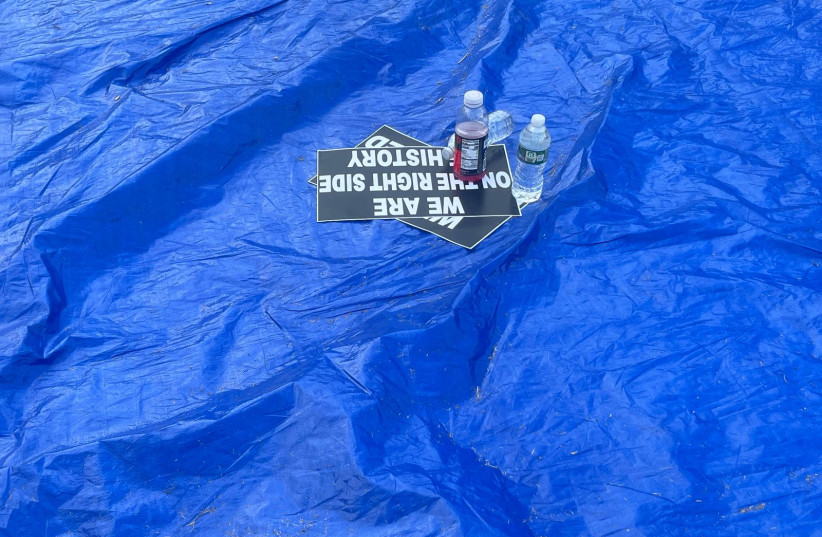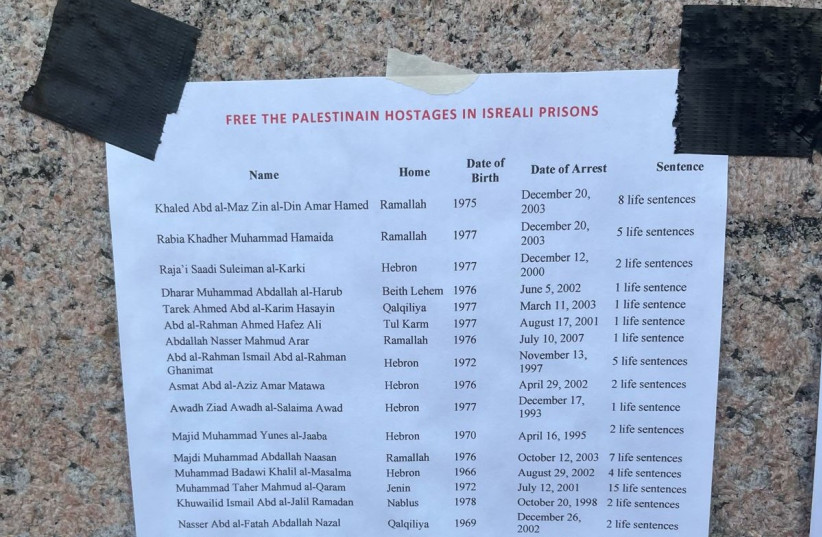Reporter’s notebook: Progressive Jews at Columbia try to make it work
It is undeniable that the protest movement at Columbia has a major Jewish component. The encampment seder was not a ploy, nor was the Kabbalat Shabbat service an act.

Note: this article was reported and written on Monday, April 29, prior to students’ seizure of Hamilton Hall and the infiltration of masked men into John Jay residence hall that night.
NEW YORK - Columbia University’s 2pm deadline for student protesters to vacate their tents came and went without a peep. The camp remained in place, and enthusiasm remained high.

Summer camp for activists
The encampment itself, however, had the environment of a summer camp, or a music festival. Olivia Reingold described it in the Free Press as “Columbia’s Communist Coachella”– another comparison could be the Supernova music festival, minus the bullets and grenades [aimed at the participants by Hamas terrorists].
"There is only one solution: Intifada, revolution!"
One hears that word, intifada, more often than one hears “ceasefire” at Columbia, and its use dwarfs that of “peace,” which is almost nonexistent.A curious "hostages" list
A few meters away, someone had affixed a list of “PALESTINAIN (sic) HOSTAGES IN ISREALI (sic) PRISONS,” and I noticed that everyone on the list had been tried, convicted, and sent to prison – their punishment was listed with their name, and it was usually at least one life sentence.'Definitional anxieties'
I spent most of my time on campus, though, speaking with a small group of students who took issue with the media’s fixation on Columbia, a burst of attention they said was unhelpful, disruptive – and, they said, noticeably silent on anti-Muslim hate crimes, of which they gave several examples.A depressing reality check for an ally of the cause
One of the progressive Jewish students I spoke to told a story of her attempt, several weeks ago, to express her solidarity with Gazan civilians, who— at time of writing— are overwhelmingly displaced, some malnourished, and many thousands of whom have been killed; the student was upset by these facts, as were many of those I talked to.“I’d heard about a havdalah,” she said, “organized by a ‘Jews for a ceasefire’ group. “I felt compelled to go.” It was happening outside Columbia, just beyond where the main group of off-campus protesters were gathered. “I ended up trying to go to havdalah,” she told me, “and I ended up in the middle of the most violently antisemitic chants I’ve ever heard in my life.
“I heard, ‘brick by brick, wall by wall, we will make Israel fall,’” she told me, “immediately followed by ‘From the river to the sea, Palestine will be free.’
This student had never taken issue with the “river to the sea” chant, she said, acknowledging that different people bring different intentions to the phrase. “But immediately preceded by ‘brick by brick, wall by wall,’ that feels extremely, extremely problematic.” Protesters had also chanted to burn Tel Aviv, she told me.
“I stood there for a good twenty minutes, and I felt so uncomfortable and so alone. Especially because I had gone with the intention of trying to show my solidarity in a Jewish way.”
But, she said, “I needed to hear that. I think I had [misunderstood] the movement and its friendliness to Jews, putting it on some pedestal, some weird exception where I didn’t care that they were being so antisemitic.
“I needed someone to look me in the eye, and tell me, ‘Israel will fall.’”
My takeaways from an afternoon on campus
As of Monday afternoon, Columbia did not appear under siege. Once the main protests died down, the scene turned remarkably calm. The encampment itself is negligible in terms of the space it takes up on campus – the reason its location has been such a fight is that it is pitched precisely where Columbia intends to hold its commencement in two weeks.





